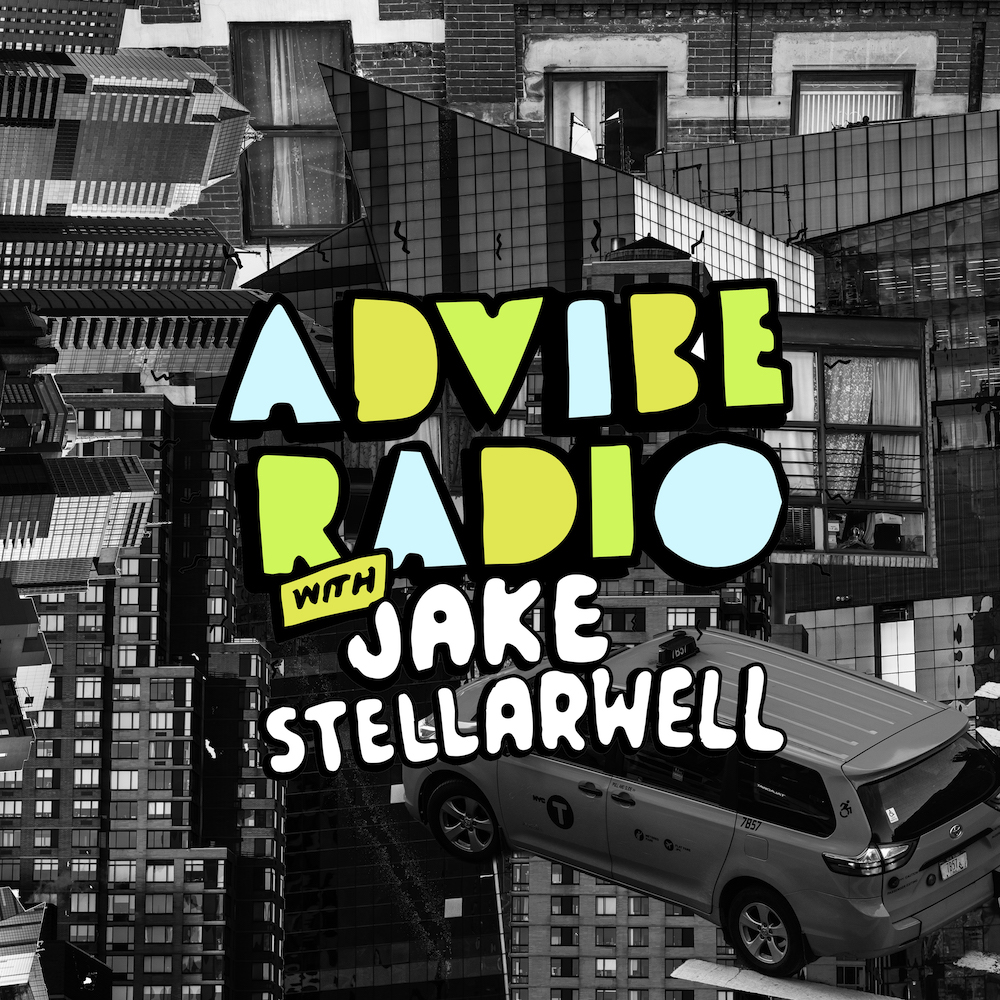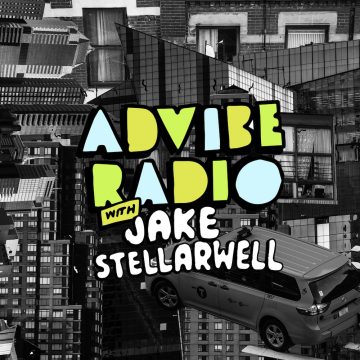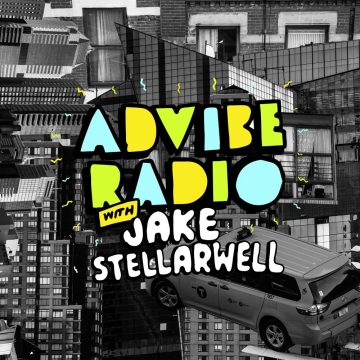AVR 07 w/ Automaticamore [Toronto]
Final episode of 2019 is here with none other than Toronto’s ‘Italo Queen’ – Automaticamore
Diana recorded this lovely mix for us and filled it with her humorous spirit. She also kindly answered, at length, each of my questions, which can be read on the MiMS site here:
First off, let’s talk entry points… how did you two get into the dance music/DJ scene?
@Automaticamore_music: I was cynical and self-loathing about being a DJ when I first started (and largely still am). I credit Mikey Apples, formerly of the legendary Shack Up party in Toronto, for nudging me into playing music despite my resistance. His DJ partner, Jaime Sin, is the person who formally introduced me to Italo. She booked Alexander Robotnick years ago, although Mikey also brought Glass Candy and Chromatics to the city. From that initiation, my formative musical direction was largely influenced by Dream Chimney – and JAZ especially, who played with me on my birthday this year – and the Cybernetic Broadcasting System, as well as random purchases of 12”s based on the hilarity of their covers and artist names. Now I’m the ‘Italo Queen’, which is a nickname I’ve picked up in the last couple of years that both amuses and delights me – especially since Italo is a genre that tends to be largely dominated by male DJs.
I see you currently live and work in Toronto, is that where you’re from originally?Time and time again, you see ambitious DJs head to Berlin or London to boost their profiles, what keeps you in Toronto?
@Automaticamore_music: I was born in downtown Toronto, and will probably die here in the pending Climate Wars. I grew up in the neighbourhood of Rexdale, and spent my teenaged years running around bars and venues I legally shouldn’t have been allowed into. People were serving me booze from the age of 15, although I have been going to shows since I was 11 – all indie rock, nothing danceable. It was a pretty charmed and culturally rich upbringing, and – thankfully – adults around me were always very protective. I remember lying on the floor of a Sonic Youth show after being knocked out by a Hep B vaccination, and total strangers tended to me, this weird sweaty mess of a kid. I’ll always have a great love for Toronto because of my nostalgia for that time.
I recently married an EU resident, and most people seem to think that I’m planning on moving to Europe, but truthfully I don’t have that ambition. I’m not opposed to it, but it isn’t a plan at the moment. Why? Well, achieving ‘fame’ as a DJ really isn’t on my list of priorities; I’m content just to be able to travel occasionally because of music and subsidize the expenses through my DJ fee. I’ll happily continue to do this until nobody is interested in booking me anymore, which is inevitable, at which time I’ll slink back into total obscurity with my living room full of dusty records. I identify first and foremost as a collector, as I’d still be collecting records even if I stopped playing them publicly. That is to say that I’d be fine with not DJing anymore, so long as I could still dig for records and nerd out about them with others in some capacity.
Because I have no ambition to “make it” beyond a few subsidized vacations, Toronto is not a bad place to be. While it isn’t without issues – and a myriad issues, at that – the city remains the most diverse and inclusive of anywhere I’ve ever been. Diversity is the norm here, and I don’t take the freedom that offers for granted. Plus my parents are here, and they are old and I love them and they buy me dinner all of the time. Lobster dinner!
Regarding your professional life, what inspired you to take the path you’ve chosen? Tell us a bit about what you do.
@Automaticamore_music: I work in social services, coordinating, developing, and delivering professional development workshops, forums, and tools for a network of 59 drop-in centres across the city of Toronto. I also work with the network to advocate for resources for homeless and street-involved people at the governmental level. So, my work is quite political in nature, and centres on raising the standard of living as well as the levels of service for the city’s most marginalized people. For instance, my work right now is largely focused on training front-line workers to better support street-involved people who are using Crystal Meth. Many people who use methamphetamine have been unfairly targeted as dangerous, largely due to misconceptions about the drug and how and why people use it. For instance, homeless people often use meth to stay awake at night to avoid being assaulted or robbed. A lot of the workshops and tools I develop are informed by my experience as a front-line social service worker, which I did for three years (and dearly miss). I still hang out with guys on the street sometimes or treat them to coffee, and they’ll come and visit me at my current job.
Before I came to anti-poverty work, I was a college and university instructor as well as an academic coordinator – all unsustainable and undervalued roles scrambling for contracts and courses every semester, with the prospect of being unemployed for five months during the summer. That was debilitating, and I switched careers after noticing an influx of students from places like Venezuela and Ukraine entering into the program I was coordinating. These were people who really should have been entering Canada as refugee claimants but were denied status; as a result, they were entering Canada as students, although most of them knew more about their fields than their instructors. I ended up being a de facto case manager for many of them. Because of this, I asked myself: why am I upholding an institution that doesn’t value my labour, and is complicit in taking money from students who are only here because of threats to their safety?
I suppose I can partly answer the question as to why I stay in Toronto through the above: I stay to fight the battle against neoliberalism on my home turf. DJing is ultimately my hobby; social justice is my work.
I’ve discovered a few cuts from your youtube channel just as many others have, how long ago did you start that and does most of your digging take place in Canada? Your selections seem CanCon heavy.
@Automaticamore_music: Record collecting has been a long-time hobby and interest. My dad was a record collector – primarily jazz, thankfully inclusive of post-1940 music – but divested most of his collection years ago in favour of digital archives. I still cling to tangible media, and records in particular, because I appreciate the authenticity of playing music on the medium it was produced for. Italo-Disco was made to be pressed onto vinyl (often shoddily, but that’s part of the charm).
Full disclosure: I was recently diagnosed with Obsessive Compulsive Disorder, and it embarrasses me that I wasn’t aware of this sooner, because it makes so much sense. If there is a “good” kind of “crazy,” I feel like OCD is it, and I’m glad that I can now apply this label to make sense of many of my behaviours and actions, most of which I view as assets. I don’t have many strong compulsions, but I love to collect things – records as well as VHS tapes, among other media – and I sincerely love to obsessively research, organize, and analyze data. Like, I read minutes from City Council documents for fun, and to parse information for the public. I started my YouTube channel eight years ago to fill the gaps in information as to what records I had that were otherwise unavailable to hear online. That’s really all it was meant to be, but it’s had an incredible influence on my life since – including international recognition for my music selections, as well as introducing me to my spouse (yes, I married a YouTube fan).
Most of my physical digging does take place in Canada. Canada is pretty remote and it’s difficult to get anywhere without a lot of time and money, so I end up trolling bins around Toronto and Montréal. There’s very, very little Italo here, but there is a lot of Canadian electronic disco, which was influenced by Italo and often produced by Italian-Canadians. Vince Degiorgio helmed Toronto’s Power Records and produced a lot of incredible tracks, including material for the Hi-NRG outfit Tapps, who are my favourite thing to come out of Little Portugal. Power also offered some Canadian pressings of Italo, including Radiorama, Gary Low, and Ken Laszlo. The dance scene in Montréal also featured a slew of Italian-Canadian talent during the late 1970s and 1980s. Funny – when I go to play in Europe, sometimes the local DJ will pop on say, a Gino Soccio record, not knowing that it’s Canadian. I’m here to preach the gospel of Canada’s electronic disco scene, because there are so many incredible classics that deserve greater recognition – even here at home, where they remain relatively obscure.
I was in Detroit over the summer and had the pleasure of playing with Nola and Reed at TV Lounge and after my set they asked if I knew you or had heard of you, as they thought our styles were quite similar – gave me a chuckle. They mentioned that you were one of their favorite DJs and that you are a regular in Detroit. How did that relationship get started and where and how often do you play there? What do you love about Detroit?
@Automaticamore_music: Well, it all owes itself to YouTube again! The guys who run the Freakish Pleasures party – and Ryan Spencer in particular – were fans of my channel, and booked me for my first Detroit gig in April 2018. I was so nervous that I drank way too much vodka and played really horribly (sorry, Detroit). A couple of months later, I was asked to play the infamous Full Moon Party in Lincoln Street Art Park. I was the last DJ on and I was losing my mind because the energy was so fantastic. The party ended at 7 am, and only because I ran out of records! Nola saw me play that party, and brought me down as a resident at the Whiskey Disco – I owe a lot to his generosity, support, and friendship. I’ve also played a few gigs at Marble Bar, and at T.V. Lounge for a party during Movement.
I love Detroit because people are completely open to new and unfamiliar sounds, and they rely on their ears and being present in the moment when they party. That is really unusual, and it is invaluable. Toronto is highly corporatized, and it’s extremely difficult to execute actual DIY parties here. Sometimes the bookings feel like a Resident Advisor checklist, meaning they’re quite strategic and trend-based. Detroiters are different: they pay attention to the music and the atmosphere first, as opposed to promotion or a very deliberate booking strategy. They’re friendly and supportive, and really seem to appreciate when I get weird with my selections. I’m grateful for that. Even in Amsterdam, playing the Bordello a Parigi Christmas party last year, I think I actually went “too Italo,” playing all vocal cuts and other oddities. The other DJs definitely played a lot more instrumentals and edits and I felt a little silly. I don’t generally play edits because part of my OCD is that I value authenticity, so I stick with OG records when I DJ (no matter how much they cost). It’s strange – I sometimes remember that there’s a cachet to owning very rare and expensive records, but really I just like having authentic artefacts. It’s not so much about prestige, really, although that is intrinsic to collecting rarefied things. I have a Masters degree in Museum Studies – which is basically like, here’s your degree for being an OCD collector weirdo – and I am very keen on material culture and what it communicates.
I’m rambling. Anyway, Detroit forever!
It seems from time to time you end up in Europe for gigs? What is that experience like and how does it compare to playing in Toronto or Detroit in your opinion?
@Automaticamore_music: Europe is so, so different than my context here in Toronto. For one, no architecture in Toronto is older than the mid-19th century and it looks like a shitty New York. To date, I’ve played in Edinburgh, Brussels, Amsterdam a few times, Nijmegen, Maastricht, Berlin, Munich, and Vienna. The Dutch are the biggest Italo fans, and I love them for it. Edinburgh is somewhere I’d like to visit again – the sense of humour there meshes really well with Canadian humour. I consider the people I met in Munich my second (Bavarian) family. While culturally, there are shifts from city to city, one thing that is consistent is that people who love Italo-Disco are often a very similar personality type. I’m not the only person who works in social services, and we often have a pronounced humanist perspective. I don’t know if it’s because Italo is so niche, that to be passionate about it you have to be a bit of an oddball, but we are definitely a tight-knit community of strange and open-minded and clever people (in spite of being a diaspora). Across Canada, the U.S., Europe, and Australia (where I’ve also played), I find that the inherent and indefinable similarity of many Italo-Disco aficionados makes my experience as a DJ consistently friendly and familiar. I’d love to play Mexico City, where Italo freaks can give the Dutch a run for their money!
Contemporary DJ culture is both better than it has ever been and worse than it has ever been – depending on who you ask. With the growing big business of main stream EDM and multi-million dollar festivals juxtaposed alongside ever-narrowing niche underground scenes, do you see any parallels with everyday life? Is our culture becoming increasingly stratified? Is this inevitable?
@Automaticamore_music: The world of festivals and the world of ‘underground’ niche dance scenes are, to me, inextricably linked (just like the words ‘inextricably’ and ‘linked’). As with all cultural production, the former mines the latter, but I’d also argue that there is a blending between the multi-million dollar world of mainstream festivals and the DIY venue. For one, we’re all using the same digital tools for the production, dissemination, and promotion of what we do, regardless of our preferred aesthetic and, within limits, our socio-economic status. In a sense, having relatively easy access to digital tools, like Ableton, and tangible tools, like controllers, as well as social media platforms like Resident Advisor, SoundCloud, Twitter, et al, has promoted more egalitarian access to DJing. While I fully acknowledge that these tools and platforms are not universally accessible, and have their own particular barriers — learning curves, for one — if you decide, “I’m going to be a DJ,” it’s not insurmountable to begin immediately. That said, my argument, which builds on Walter Benjamin’s ‘The Work of Art in the Age of Mechanical Reproduction’, is that the reproduction of the tools that create art — not just the art itself, like Benjamin’s example of the endless printing and re-printing of the Mona Lisa — can impact the cultural value of what is produced. That is not to say that I’m valuing people’s tracks, edits, and mixes as either ‘good’ or ‘bad’; rather, I’m suggesting that there is a baseline ‘sameness’ to what we’re all doing by virtue of our all using the same tools, and this undercuts how we perceive creative work.
There was a time when hearing music or seeing an image was a rare occurrence — sacred, even. We are so inundated with sounds and images that they have lost their ‘aura’: the lustre of rarity that once made our communion with visual and aural works remarkable. There are periods in history where people’s access to art and music may have only occurred through the church, for example. So, creative works, including music, have inherently lost value because we exist in a society of endless production and reproduction that has made them proliferate, and thus moved them closer to meaninglessness. This is obviously part and parcel of late capitalism, which spews forth endless products for consumption (including your DJ mixes). At the same time, both the beginner bedroom DJ as well as the EDM festival headliner are using the same instruments for production, as well as the same social media platforms, because the tools — like the art — have proliferated. Because of this, both parties inevitably resemble or influence one another (not necessarily reciprocally), and the machinations of production and reproduction lay the groundwork for homogeneity. Another dimension of this is that social media allows us to self-select ourselves as members of (dispersed, global, amorphous, largely online) music communities where, of course, that influence becomes even stronger. Cough – Techno Twitter – cough.
These processes influence many aspects of our society, so in that sense, I would certainly say that our everyday life is impacted, and it is inevitable. Resistance to these processes is becoming narrower, more esoteric, more difficult to achieve. We exist in this society, so ultimately we have to participate in it – at least until we are able to meaningfully reform it. In the context of DJing, we will all still be using these tools because we have to in order to do what we do. The mainstream and the underground will always intersect because of it, and they will cyclically influence one another. However, someone like myself, who is invested in a rarefied, high-barrier medium with prohibitive costs and limited access (yay, vinyl!), can place a toe outside the door because the medium is deadstock — a commodity still, but not easily circulated like an Mp3.
I realize that, for this reason, vinyl is not egalitarian. However, it does offer a small respite from the homogeneity and gluttonous consumptive processes that characterize our world. I try to negotiate the elitism of vinyl by playing my records publicly in dark, boozy clubs so that others can enjoy them too, and by posting select finds on YouTube. I know that playing my records in clubs makes some collectors very faint, but I believe in honouring the function of artefacts instead of removing them from their intended purpose. Records were meant to be played, so I will play them, understanding that nothing can or should be preserved forever — everything is ephemeral. So, I feel great satisfaction in holding and owning authentic artefacts, but there is no value in furrowing them away simply to preserve them – they can and should be shared. When I play records out, I want people to feel like we are experiencing something rare together that can’t be easily found online.
Re: online, I also almost never listen to stuff on SoundCloud, except from a few like-minded friends, and I have never really engaged with Resident Advisor. The act of not knowing is another way that I try to create healthy separation between myself, and the leviathan of tools, platforms, processes, and people that constitute the ‘DJ world’. By the way, this is how I’m interpreting ‘niche’ in your question. I am almost purely a digger, and I have to rely solely on my own sensibilities when I listen to records. That can be stressful, because your only metric for ‘good’ or ‘bad’ is entirely subjective. You need to be assertive with your taste, even when you’re pretty sure everyone else is going to be like, “what the fuck is this garbage pile?” For this reason, I would say that there is a definite risk as a DJ when you detach from the collective consciousness! But it’s also the only way you’re ever going to be ‘fresh’ (I am hesitant to say ‘a tastemaker’, but it’s kind of true).
Any words to the wise for aspiring diggers/DJs?
@Automaticamore_music: I don’t think I can offer any advice for people who consider themselves ‘just DJs’, but for DJs who primarily consider themselves diggers: be patient. You can’t expedite the process of becoming either an expert, or developing your own unique taste or sensibility without prolific time and effort, and healthy detachment from the DJ hive mind (despite the risks I outlined above). Attempting to expedite that process will inevitably be inauthentic, and it will show.
Also, if you’re playing your records out, VG or even a very conservative G+ is fine. Don’t listen to the audiophiles: you’re going to ruin your records out anyway, just go with it. Take it from a quasi-professional ruiner of records!
Thanks for the time and keep up the good work. Can you tell us a bit about the mix you’ve shared with us?
@Automaticamore_music: It’s eclectic! You’ll find everything from the OG electro (Cat Stevens), to extremely rare, compilation-only non-electronic Italo, to a dollar bin find of children rapping about safety tips. I wanted to imbue my signature humour into the mix — I like songs that are, quite frankly, strange and hilarious. So much of Italo is quirky, naive, and earnest, and by extension kind of funny — although I want to stress that I am never making fun of it. I love Italo the same way I love b-grade horror movies: when done right, their naivety and auteurism blend seamlessly into a fantastic product that sits on the cusp of good and bad taste. Obviously, for me it errs on the side of good taste, although I recognize that Italo is niche for a reason. This mix is only half Italo, and almost all my own vinyl except for three digital tracks, including two records I can’t afford to own and a superb edit of Sign System by JAZ. John, thank you for removing all of the bad parts!
I try to construct a narrative when I make mixes: a basic structure of an introduction, climax, conclusion, and denouement, usually in the form of a final ‘slow jam’. This is a little different: there’s a pseudo-climax with ‘Alan’s Keep – Jou’, then a plot twist and a bit of a cliff-hanger with ‘Space Case – Space Beat’ before a shorter second act. No denouement. Anyway, I hope this mix will make you laugh, cringe at the appropriate times, and feel a little weird and mirthful afterward. If you’re open to it, I also hope it will make you dance.
I’m Canadian, so I’ll live the stereotype and leave you with an apology: sorry that my B.O.S.E. record is barely even G quality.






No Comment